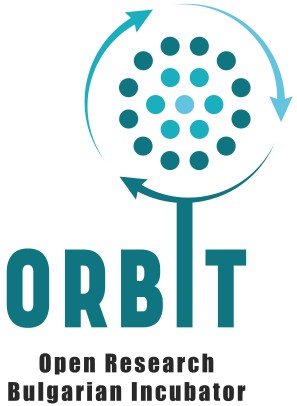
Human beings are mostly harmless. And they know a lot less than they think they do.
— The Hitchhiker’s Guide to the Galaxy, Douglas Adams
Traditional Problems of the Research Project
The traditional research project is subject to an array of requirements – depending on the research organization where it is hosted, the funding body that supports it, or the publisher that eventually disseminates its results. Researchers submit proposals and ideas, but these often vanish into “black holes” – with little or no feedback, and opaque reviewers’ decisions. Every funding body has its own forms, conditions, rules, and deadlines. Submitting a project proposal can sometimes feel like a lonely exercise, with minimal feedback or collaboration. Early-career researchers struggle to formulate research projects on their own without mentors or good examples. Sometimes a single idea has to be rewritten multiple times for different calls, until it not only loses its meaning but also drains time and energy from the researchers.
What Is an “Open Research Project”?
An open research project applies the principles of open science to the very process of writing and planning. A group of researchers co-develop an idea online, which allows for rapid feedback and genuine co-authorship. The project is shared from its early stages, during and after writing, through different collaborative platforms. Crucially, even at the earliest stage of formulating the research idea and hypotheses, citizens and other stakeholders can be included. The development of an open research project follows this new philosophy, built on transparency, collaboration, and societal engagement.
How Can an Open Research Project Solve Traditional Problems?
An open research project helps researchers receive comments early, shaping their ideas at the very start. Collaborative platforms allow the project to be written in separate modules, easily reused in future proposals, thus preventing wasted effort. Published proposals can serve as examples for others. Shared projects attract co-authors with different ideas. Co-writing opens the door for early-career researchers to develop project-writing skills and to gain visibility for their research. By including diverse stakeholders from the outset, these actors feel like co-owners of the idea, motivated to help realize and promote it – creating opportunities for feedback and new partnerships.
Practical Steps for Writing an Open Research Project
Step 1: Use collaborative writing platforms such as Google Docs, Overleaf, HackMD, or Etherpad for real-time writing, versioning, and visible contributions from each participant.
Step 2: Use public repositories
- ROADMAP (Registry of Open Access Repository Mandates and Policies).
- Zenodo, Open Science Framework, or Figshare for archiving successful projects.
Step 3: Share early drafts
Use preprint servers like arXiv, SocArXiv, or the Open Grants section of the Open Science Framework (OSF) to publish your project with its own DOI (Digital Object Identifier).
Step 4: Ask for feedback
Leverage research communities on social media – hashtags included – for targeted feedback.
Step 5: Publish document versions
Use GitHub or OSF to manage versions and track feedback. Transparency becomes an asset if your project evolves into a publication.
Step 6: Reuse
With open licenses such as CC BY, you and your co-authors can adapt sections of your project for future proposals.
Good Practices and Examples from the EU
The EU’s flagship program encourages open science practices throughout the entire project lifecycle.
Provides tools for integrating open science practices, including co-creation and public dissemination plans.
Develops joint research agendas, enabling collaboration between scientists, citizens, and policymakers from the earliest stages.
Publish research drafts, offering visibility at very early stages of the process.
Applies open and responsible research and innovation (RRI) principles, with recommendations for reducing systemic inequalities in research funding.
Conclusion
Sharing a research project openly can trigger fears: what if someone steals your original idea and carries it out instead? But science needs sharing, because what was rejected or considered useless by one person may inspire another to carry out their own original project.
So make your next research project open. You’ll gain feedback, collaborators, and perhaps even funding.
In science, your “towel” is the willingness to share openly what you have discovered, how you discovered it, and why it matters.
